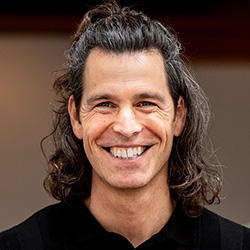

NVC Resources on Dialogue
-
Learn how jackal and giraffe mascots teach NVC dialogue, with many jackal examples.
-
Join Roxy Manning for a provocative fishbowl discussion about how privilege and lack of privilege affect people of color.
-
Join Dian Killian and Mary Mackenzie for a provocative fishbowl discussion about how privilege and lack of privilege affect women.
-
Join a provocative fishbowl discussion about how privilege and lack of privilege affect men.
-
Join Jeff Brown for a provocative fishbowl discussion about how privilege and lack of privilege white people.
-
Here's a list of words that pose as feelings, but are actually interpretations of what you think someone is doing to you. They trigger defensiveness in another thereby preventing a connected dialogue. Behind each of these words are precious feelings and needs. This sheet includes ways to distinguish feelings from interpretations.
-
The notion of "micro-aggressions" may be levied by those in the dominant class - for example white folks may talk about receiving micro-aggressions when a (legitimately) angry BIPOC references them as "white". This shuts down the conversation and feeds a myth that everyone's pain about race is equal. It doesn't foster dialogue that moves us towards a more equitable, compassionate world. Read on for more about the complexity.
-
When someone's behavior costs us, we may attempt to negotiate as much as possible. After some rounds of this, if there's no change we may reach a tolerance limit. So we may set a boundary for self care and clarity about what's unworkable. But depending on intentions and the way its said, this may or may not be a punishment to get even. Here, clarity about intentions, feelings, needs, actions and dialogue may support us.
-
Duke Duchscherer shares what the role of the facilitator is in a restorative circle.
-
How do you solve a conflict? By not trying to solve it! Yoram suggests building your conflict resolution muscles by practicing connecting to the needs behind the conflict instead. Check out this excerpt from Session 1 of his 2021 course, Connecting in Conflict and the Art of Navigating Dialogue. Listen.

Quick Links
Subscription Preferences
Stay In Touch!
Looking for ways to keep up with NVC Academy news, get special offers, free resources, or words of inspiration? Here are five ways to stay engaged:










